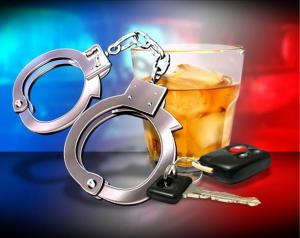Here in Massachusetts, persons charged with first offense operating under the influence (OUI /DUI) and certain second time OUI offenders may have the option of what is called the alternative “24D” disposition, which includes participation in an alcohol education program as a condition of probation. Many different approved alcohol education programs, all of which are on their face secular in nature, are listed with the Bureau of Substance Abuse Services. However, when alleged offenses other than OUI are “alcohol-related” (such as domestic violence, assault and battery, property crimes, resisting arrest, etc.) it is not uncommon for Massachusetts prosecutors to request and for judges to impose participation in Alcoholics Anonymous, an organization that is very arguably religious, as a condition of probation. While the Supreme Court has yet to rule on whether A.A. is a religious organization, there is a fairly strong argument that imposition of A.A. as a probationary condition is unconstitutional.
Much of the law on whether A.A. is “religious” arose from cases where prisoners and probationers claimed free exercise and establishment clause violations after being forced to attend A.A. meetings. Courts in California, Tennessee, and New York have held that A.A. is religious, while courts in Kansas have said that it is not. The Second Circuit Court of Appeals has determined that an atheist drunk driver’s constitutional rights were violated when he was forced to participate in A.A., described by the court as “religion-tinged,” as a condition of probation.
While the A.A. preamble states that the program is not religiously affiliated, its practices and “12 Steps” indicate that it might well be. For instance, the “Twelve Steps” reference “God” and a “Higher Power,” though they don’t reference organized religion. The so-called “Third Step” instructs that one has “[m]ade a decision to turn our will and our lives over to the care of God, as we understood him,” according to A.A.’s “Big Book.” Furthermore, A.A. meetings conclude by reciting the Lord’s Prayer, according to A.A. literature.
Prosecutors who request, and courts that impose, mandatory A.A. meetings as probationary conditions also completely ignore the plight of voluntary A.A. participants. It would seem that voluntary participation in such a program loses its meaning when persons are forced to attend as a form of punishment. It would also seem that voluntary participants might be less than comfortable sharing with forced participants.
As a practical matter, A.A. is free, whereas more secular alcohol education programs are not. Often, A.A. attendance is imposed as a condition of pre-trial probation in alcohol-related cases, and in such circumstances, it could be wise to accept such a condition. You should speak with an experienced criminal defense attorney about your options.
Continue reading →
 Massachusetts DUI Lawyer Blog
Massachusetts DUI Lawyer Blog




